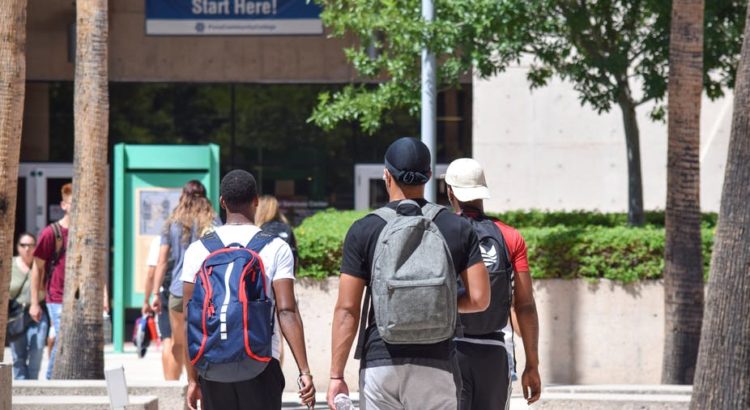North America/United States/27-10-2019/Author(a) and Source: theconversation.com
When it comes to getting into a selective university, high school GPA and test scores typically play the most important role.
But in a recent study, we show another way to attend a selective university: transfer from a community college.
This alternative option is important for students who are minority, low-income, and underprepared academically for higher education. Students from these particular groups are less likely to gain admission and enroll at a selective university.
As researchers who specialize in the study of higher education, we know that going to a selective university often gives students a competitive advantage on the job market.
Students who didn’t attend selective universities – especially racial minorities – face disadvantages when they compete for jobs with students who do. For instance, students who graduate from a highly selective university get more responses from employers when they’re on the job market – which could be due to the perception that students at prestigious universities receive a better education than students at other institutions.
A way in
Our study included 7,110 college students nationwide. We found that students who transferred from a community college were 24% more likely to attend a selective university than students with similar background characteristics who began at a four-year institution. In general, selective universities admit students based on criteria related to past academic performance and test scores. Selective universities differ from open-admission institutions, which admit nearly anyone who applies.
The students in our study who transferred from a community college to a four-year university were more likely to be minority, low-income, and academically underprepared students with low high school GPAs.
Based on the academic characteristics of these students, starting at a selective university out of high school was likely not an option. But community colleges can open the door to selective universities.
Our study accounted for differences in students’ race, family income, academic preparation and other characteristics. We don’t know, however, whether certain types of students, such as immigrants, were more likely to transfer from a community college to a selective university.
Practical benefits
There are practical reasons to begin at a community college that can help to explain our findings. For instance, students who start at a community college can save money due to the low price of community college courses. For price-conscious students who may have been wavering on the decision to pursue a bachelor’s degree at a university with high tuition, community college offers a chance to make progress toward their degree at a low price.
Community colleges also offer more remedial course options than four-year universities. Remedial courses can benefit students who are not prepared for college-level work.
Students who transfer from a community college may be more likely to get into a selective university due to factors beyond their own academic development in college. Simply put, high school grades and SAT scores are less important for transfer students than students who are seeking admission directly out of high school.
While starting at a community college might be a good way to make college more affordable or help students develop their academic skills, it doesn’t always lead to a positive outcome.
Students who transfer from a community college to a four-year institution are 37% less likely to earn their bachelor’s degree than students who start at a four-year university. And when they do complete their bachelor’s degree, it takes them about three months longer to graduate.
Career consequences
Students who transfer from a community college to a four-year university may experience a wage penalty as they begin their career. One reason these students might earn less early in their career is that community college credits don’t always transfer to a four-year university. This loss of credits leads to a delayed entry into the workforce. Meanwhile, their peers have a head start to become eligible for promotions and raises.
Community college students don’t have to lose credits when they transfer to a four-year university. All states could implement “articulation agreements” to ensure that community college credits are accepted at four-year universities.
Only 30 states have articulation agreements that guarantee the transfer of core community college credits and the associate degree upon enrolling at a state university.
Articulation agreements are a common-sense measure that would allow transfer students to avoid unnecessary hurdles and graduate sooner.
Community colleges educate 55% of low-income college students in the United States. Only a small portion of these students transfer to a selective four-year university.
But the small share of low-income students at selective universities would likely be even smaller without the community college pathway.
Source and Image: https://theconversation.com/community-colleges-open-the-door-to-selective-universities-122978









 Users Today : 5
Users Today : 5 Total Users : 35459600
Total Users : 35459600 Views Today : 10
Views Today : 10 Total views : 3417982
Total views : 3417982